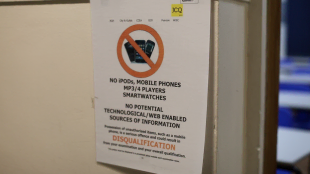Exams are starting

Exams are starting
Posted by: Julie Swan, Posted on: – Categories: A levels and GCSEs, exams
This is our last blog before summer exams start on 13 May and we’re using the opportunity to talk to those at the heart of it all – students. As we want every student to achieve the grade they deserve, here are our final hints and tips for you as the exam series starts:
- Check, check and check again your exam timetable; make sure you know what equipment to take to each exam and arrive in good time. Our checklist is a good reminder if you’re not sure.
- Follow all the instructions you are given about what to do with your phone. Every year some students have marks deducted or are disqualified altogether from an exam because they didn’t follow the instructions they were given about where to leave their phone. Don’t be caught out.
- Don’t be surprised if there’s a question in the exam that isn’t what you expected. Questions are often designed to test how students can apply their knowledge to an unfamiliar situation. Stay calm, think about the question and apply your knowledge to the scenario given.
- Don’t expect to be examined on all that you have learned. The exams would have to be much longer if they included questions on everything you had covered during your course.
- It’s fine to share your feelings about an exam on social media, but if you have a genuine concern about an exam, for example, you think there might have been an error in a question, you should raise that with your exams officer or teacher. They can decide whether to raise it with the exam board. Any other concerns? Check out our guide for students.
- The exam boards have tried and tested ways of spotting whether an exam or a particular question was more (or less) demanding than previous years. If this is the case, they will take that into account when they set their grade boundaries. This is one of the many steps we and the exam boards take to make sure exams are fair for all.
- It’s normal for students to be anxious during the exam period and in the run up to it. Take a look at our guide for advice on how to manage such feelings.
- If you see or hear about something that doesn’t seem right – for example, you think someone isn’t following the rules – raise it with your invigilator, your exams officer or a teacher.
- Just in case it’s needed, make sure you could be available to take an exam on and up to the contingency day of 26 June. This is in case exceptional circumstances mean an exam has to be re-timetabled.
- If you are ill or injured or if something happens beyond your control that might affect your performance, talk to your teacher or exams officer as soon as possible about your options.
I wish all students taking exams this summer every success.
If you would like to talk to Ofqual about any of the issues raised in this blog, please contact us at [email protected].











Responses